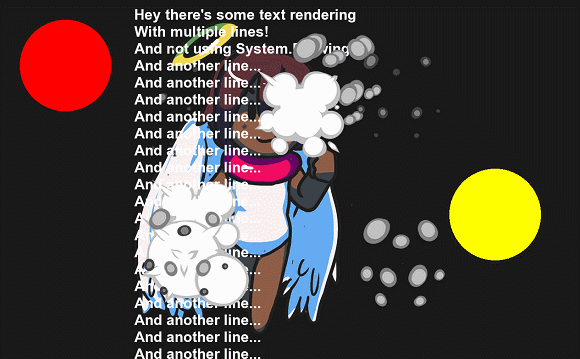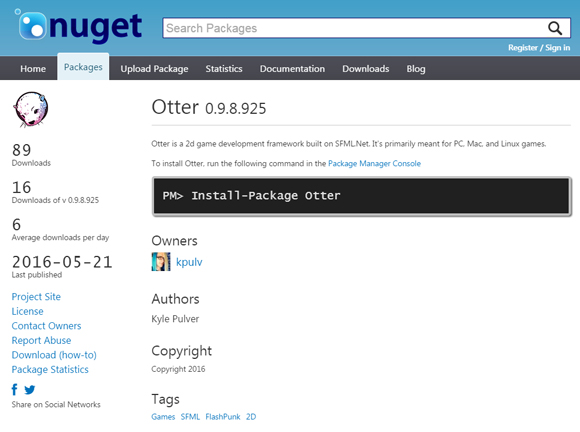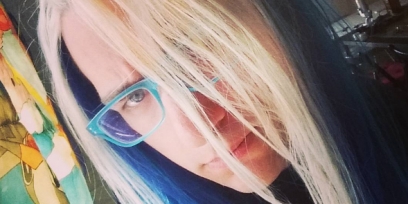Otter FNA Progress
Sorry for the huge gap of silence. I got back from Game Developers Conference at the beginning of the month and then some kind of super heavy depression hit me hard. I'm starting to crawl out of it and making some progress on things again. Starting to get really annoyed at my brain and will probably have to take this a little bit more seriously in the future. Maybe some kinda doctor can help me out or something. Anyway!...
One of the projects I'm spinning up more now is a new version of Otter that uses FNA. FNA is an open source implementation of the XNA framework. A lot of people seem to think that XNA is somehow dead but with the advancements of things like FNA and Monogame I don't believe that to be true at all. As long as Game Maker wont let me use C#, and as long as using Unity for 2d is a gigantic pain, I'll be sticking with my current plan of making my next game with FNA.
The beginnings of Otter FNA in a somewhat broken state can be found on Github. I'm migrating over from Bitbucket so that hopefully more people can contribute and discover Otter. I personally really like Mercurial and Bitbucket, but the bigger audience is definitely over on Github.
The framework is somewhat useable right now, but has a long way to go. It's missing a lot in the realms of graphics and collider types still as I port those over from Otter SFML as I need them. I'm going to be building it out along side a game project. More on this as it develops, but I don't have as much time as I usually do because of another secret project that I'm involved with.
One of the projects I'm spinning up more now is a new version of Otter that uses FNA. FNA is an open source implementation of the XNA framework. A lot of people seem to think that XNA is somehow dead but with the advancements of things like FNA and Monogame I don't believe that to be true at all. As long as Game Maker wont let me use C#, and as long as using Unity for 2d is a gigantic pain, I'll be sticking with my current plan of making my next game with FNA.
The beginnings of Otter FNA in a somewhat broken state can be found on Github. I'm migrating over from Bitbucket so that hopefully more people can contribute and discover Otter. I personally really like Mercurial and Bitbucket, but the bigger audience is definitely over on Github.
The framework is somewhat useable right now, but has a long way to go. It's missing a lot in the realms of graphics and collider types still as I port those over from Otter SFML as I need them. I'm going to be building it out along side a game project. More on this as it develops, but I don't have as much time as I usually do because of another secret project that I'm involved with.
4 Comments




















